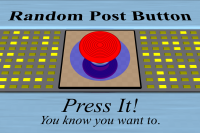 In the Science Notes post published last Friday, I didn’t have room for the last article that caught my eye in recent issues of New Scientist. This article was, I thought, a bit different from the others and seemed to require its own post.
In the Science Notes post published last Friday, I didn’t have room for the last article that caught my eye in recent issues of New Scientist. This article was, I thought, a bit different from the others and seemed to require its own post.
Firstly, it has a meaty heft and ties in with an old post of mine as well as some notes I have for a post I thought to call Stillness Redux (in reference back to that old post).
What’s ironic to me is how what the article offers as possible anodyne for modern life is very much the life I’ve lived since I began navigating my own course across life’s seas.
That list of notes from interesting articles was intended as a reminder for upcoming prandial conversations, so I didn’t copy URLs or even titles. Fortunately, despite an apparent general decline in search engine effectiveness, I quickly found the article in question:
How mastering the art of being alone can boost your mental health, by Heather Hansen, a freelance journalist and author.
As usual with New Scientist articles, there is a paywall, so that link probably isn’t much good. In fact, the bits I copied start just where the linked page fades out:
As social creatures, research has historically pointed us away from time alone. But recently, more people are spending time away from the crowd, and even seem to crave it. Now, we have evidence as to why alone time can feel so good and may in fact be vital to your health and well-being.
Already definitely preaching to the choir here. This, and what she goes on to say, are, as I mentioned, where I’ve been living most of my life. Part of what caught my eye here is how this is another example of science catching up to what I would have thought was common knowledge (or at least common sense).
It’s not the studying the obvious that gets me. Science should study everything. And common knowledge, let alone common sense, are not scientific fact and need to be investigated. So, yeah, for sure, study stuff.
[My canonical example of science studying the obvious was a study done, I believe at MIT, that tested pizzas to determine why the sauce is so hot that the first bit usually burns your tongue. They discovered the obvious: Firstly, the sauce has a lot of oil in it, and oil can be a lot hotter than water, so the sauce absorbs more heat in the cooking. Secondly, the bread layer below and cheese layer above act as insulation that keeps the sauce hot long enough to surprise us.]
What got me was the notion here of common knowledge being seemingly ignorant of what seems obvious to me and any life-long introvert.
Researchers have been cataloguing the negative aspects of feeling alone, including loneliness, social isolation, anxiety and ostracism, for over a century. From that body of work, we know that isolation – which is often wrongly conflated with solitude – is harmful.
A key point here is that isolation (or alienation) is different from solitude. Firstly, the former is often involuntary whereas the latter is a choice. Secondly, the former can be prolonged over years or decades, whereas the latter, as suggested here, is a short vacation.
Surprisingly, our participants described solitude as having a psychological distance from others, but not necessarily a physical one. That means they could be sitting in a room with a trusted loved one or even on a city bus and still reap some benefits of time alone – as long as they could truly have independent thoughts. Being free of others’ expectations and input is one aspect of solitude that makes it so relaxing for many people.
Not surprising. “Being alone in a crowd,” is an old phrase that describes this idea. The invention of headphones made finding solitude in crowded public places a lot easier. They’re a visible signal saying, “Do No Disturb!”
Together, these studies indicated to us that, done correctly, people can use solitude to regulate their underlying emotions. A small amount of solitude allowed them to become quiet after excitement, calm after being angry, or peaceful when they desired.
A time out. Walking away for a moment. Counting to ten. Good for extreme emotions, but I’m not completely sold on the notion of regulating emotions. At least not wholesale. Certainly, some of our thoughts shouldn’t see the light of day, but there’s a difference between feeling and expressing, and I’m leery about trying to regulate feeling.
Ideally, there would be a formula for how much time humans need to spend with and without others to maximise our chances of health and happiness. But emerging research indicates there is probably no one-size-fits-all answer.
The latter sentence so clearly contradicts the former. It’s the latter that’s correct, I think. Everyone has to find their own way. There are no formulas or constants. (The only thing that is constant is that nothing is constant.)
Ultimately, though, you may still dislike being alone. But if you weren’t “born to solitude”, we have a secret weapon for you: curiosity.
Being alone is my default condition, so I’m a bit bemused by the idea of disliking being alone. I know people feel it, but it’s like a fear of dogs — so not within my experiential frame. Obviously, I’m “born to solitude” (and dogs). I imagine most introverts are. It’s almost a defining characteristic.
Bottom line, yes, absolutely, solitude has great value. It has been a life-long companion, and I don’t question the role it has played in my sanity (assuming I can make any claim to such).
§
So, yes, great advice, but it raises a question for me. How do people not already know this? How is this not something we learned early in life? Are we so herd-like that we have no sense of the value of solitude?
Has social media taken us from a herd mentality to a hive mentality? One can certainly make the analogy of queen bees and drone-like followers and worker bees. We used to have a pack mentality. That evolved into a tribal mentality, and the Agricultural Revolution pushed us into a herd mentality. We’ve grown to belong to larger and larger groups over time.
That some find it such a challenge to disconnect even temporarily from the interweb seems indicative of a hive mentality. At the least, it seems to say solitude is foreign idea. It may indicate a form of behavioral addiction, but interweb use (as opposed to just social media use) is so interwoven into our lives that it’s hard to call using it an addiction (some restaurants now send a text when your table is ready).
Social media, however, has far more groupthink, peer-pressure, and pressure to represent. Plus, the thirst for views, likes, and follows. On top of that, algorithms and the gravitation of interests tend to polarize, create bubbles and echo chambers. Social media is a set of stages, each with a set of actors playing their roles.
§
Finding some peace and grace in today’s fast-paced churn seems more important than ever.
Political behavior has gone to places that were once so far beyond the pale that everyone from every side rejected it. Once upon a time, we valued integrity, honesty, and trustworthiness. We valued truth and facts. Now it’s like a sport. We support our teams no matter their crimes, misdemeanors, or failures. We wave the flag high and shout at the other team (and their fans), umpires, and journalists. Not that politics was ever entirely gracious, but, at least in memory of generations, we seem to have sunk to new lows.
COVID kicked our collective asses. Seven million dead in four years. Over one million of them in the USA (taking more than our fair share again). [See The COVID Toll.] The lock-down put a lot of stress on a lot of people. On top of the whole sickness and dying thing. The icing was how it became yet another culture war — the war of masks and vaccines. Things got bitter. People got hurt. Some went to jail.
We still have, lingering in memories we wish we could forget, actual civil insurrection against the U.S. Capitol. Things got bitter. People got hurt. Some went to jail.
The big topic these days is what to do about climate change because it’s basically too late to do anything about climate change. The world is already clearly and obviously getting warmer (warmest years on record). The bigger the ship, the slower it changes direction. The future is rosy because that’s the color on the heat map for too damn hot.
Plastic recycling, and just plastic itself, is another rabbit hole you don’t go down unless you want yet another thing to make you anxious about the future. Suffice to say, we try to bury about half of it, we burn a quarter and recycle another quarter. But the real worry pill is labeled “micro-plastics” — an “oh, shit” rabbit hole all its own.
But wait, there’s more: Not one but two very worrisome regional wars. Especially worrisome because all the parties involved have no conciliation (our cause is righteous). Especially worrisome because of the militance of the leaders involved (they only speak in bombs and bullets). Especially worrisome because at least one of the parties involved in both cases has nuclear weapons (and maybe is just itching to use them).
The world is worrisome. And we see how much so on our phones.
§
Are we just worn out, exhausted by so much muchness? Has a culture that constantly finds a new way to turn it to eleven finally blown out its speakers? Are we decadent victims of our own astonishing species success?
In science fiction, one theme is that immortality, if you could have it, would eventually become empty and boring. There are a number of nuances to the proposition (our minds only holding so much information, for instance), but I think the general idea is probably right. Having too much, too many choices, is its own form of ennui. Culturally, most of us are idle rich.
Another sign of decadence: We assign so much importance to small things. What people wear and say rather than what they do.
Dave Chapelle is just one example. He’s a standup comic, he says outrageous things for a living, and his jokes are not equal to his beliefs. Yet some targeted him for those jokes as though he was a normative authority. Trying to regulate his speech implicitly treats him as actually having the power to arbitrate culture. Which he doesn’t.
At least not on his own, although social media does change the equation considerably. Small groups can achieve viral power. Sellers fear bad press will drive away buyers. The balance of power is different these days (and the frequent unfairness being possibly yet another source of stress and anxiety for the rest of us).
But good heavens. He’s a comedian. Stop taking everything so seriously.
As H.L. Mencken wrote in 1949, the Creator is, “A comedian whose audience is afraid to laugh.” The absurdists and surrealists have a point (but don’t go too far down their roads); life is a strange gift (with no instruction manual, so ya just gotta try stuff).
§
Which has wandered from the theme of solitude but ended with exactly the reason for that need. There wasn’t much more to say, really. The prescription is simple. As I said in that old post: Seek some moments of stillness. Seek the still of your heart.
That’s it. Just slow down and stop.
Look.
Listen.
Think.
Breath.
Stay still, my friends! Go forth and spread beauty and light.
∇













May 26th, 2024 at 10:46 am
I like being alone. Prefer it even.
In reference to YouTubers who isolate and film themselves, typically in the wilderness: are they really alone if they act and speak to the camera?
Humans become fertile around 15 years of age. As long as war, famine, social media, climate change and micro plastics don’t mess with that, humanity should exist until the next ELE.
May 26th, 2024 at 3:03 pm
Good question. Is performing for the camera — acting as though you were not alone — different from, say, writing a story or blog post? It does kind of feel different.
Agreed, humanity isn’t in much danger of being wiped out, but does seem in danger of a much shittier quality of life going forward. And it’s our own bed we shit.
May 26th, 2024 at 6:10 pm
Are we just worn out, exhausted by so much muchness? Has a culture that constantly finds a new way to turn it to eleven finally blown out its speakers?
I feel like we’re either there or nearing it. What can we do except respond with apathy? Consider all the mass shootings and how they used to be covered by the news for weeks. Now they barely mention them.
This ‘so muchness’ is going on in virtually every area of our hive: TV and movies, books, music, news…what’s needed is a filter.
Speaking of hives, today was the second time I witnessed bees swarming. Scary stuff. It’s very very loud when they go by.
May 26th, 2024 at 10:17 pm
It’s one of the ramping up curves to go along with the population curve, the warming curve, the technology curve, etc. The world becomes more and more of a muchness all the time. It never ramps back down. None of these curves do. So, yeah, we become immune to it all.
Filters are good. Just ignoring it works, too. The only “social” media I had was YouTube and WP. I rarely read or post comments on YouTube, and WP is for blogging. As you know, joined Substack recently, and that Notes business is the most social media I’ve dipped into in many years. I’m leery of getting sucked too deeply into it.
Swarming bees! Heard about that but never seen it. Looking for a new nest, right?
May 27th, 2024 at 11:18 am
Yeah I see you’re liking Notes, just as I thought you might! I have a different problem with Notes since I never write anything short or sound bitey (if that’s a word).
I think that’s right about the bees.
May 27th, 2024 at 11:39 am
Your thoughts are just too deep for such short-form blogging. (Is it what they call “micro-blogging”?) I suspect I’ll get tired of it in time, but for now I’m having to throttle myself to only a few Notes per day. (Though I have wondered if volume might more attract the attention of The Algorithm. I don’t think I have a lot of visibility, yet.)
May 27th, 2024 at 1:07 pm
I’m not sure about my thoughts being too deep for short form writing, but sure, if you say so! 😉
I think the real problem is that I have little experience with it (I’ve never used Twitter and I did sign up on Facebook, but it left me cold). And I’m not naturally good at brevity, though I can do it if I work hard. Mainly I just don’t know what sort of thing to say except whatever I might have left out of a blog post, but that wouldn’t work outside of context. And I have no idea where people get their funny memes from. I have been thinking about posting links to my videos, but I get the feeling that won’t work on Substack.
May 27th, 2024 at 1:26 pm
Well, you’re a philosopher, and they are rarely noted for their brevity. 😁
You don’t have to be into memes. Short-form is fun for those passing thoughts or observations that you might store up to tell people or someday include in a story. Almost a kind of diary for recording thoughts you might want to come back to. Handy and easy place to stash them. And who knows, you might get interesting feedback. (Or mostly ignored.)
Let your inner short-form freak flag fly! (Now say the last three words ten times fast.)
There’s no technical reason you can’t post YouTube videos in Notes. I’ve already done it. Just paste the URL of the video into a note, and Substack does the rest. Or click the little icon for movie if you want to upload a video from your hard drive.
May 27th, 2024 at 1:29 pm
Oh, yeah, I know how to post the videos, I’m just not sure anyone wants to watch them from Notes. I think unless you upload directly from your computer, people won’t want to click a link to be sent to YouTube. Maybe I’m wrong though. Doesn’t hurt to try, right.
May 27th, 2024 at 1:36 pm
I’m not sure it sends you to YouTube (depending on what you mean by sends). I think the video plays in the feed. It does when I click the video I linked in my own Notes feed, but I’m not entirely sure about the general Notes feed. I assume it plays in the feed. If you just mean it streams data from YT when watched, then yeah, totally.
I’d say go ahead and try it. What do you have to lose?
October 24th, 2025 at 9:14 am
[…] And I think there is value in boredom, in letting your mind roam. I read an article recently that linked creativity with boredom. [Not the article in mind, but I did post about a related one. See Stillness and Solitude.] […]